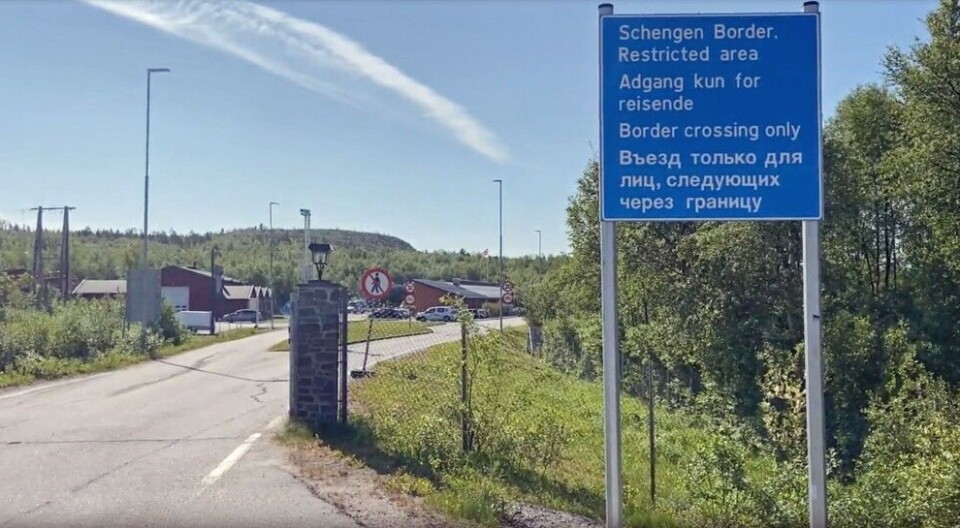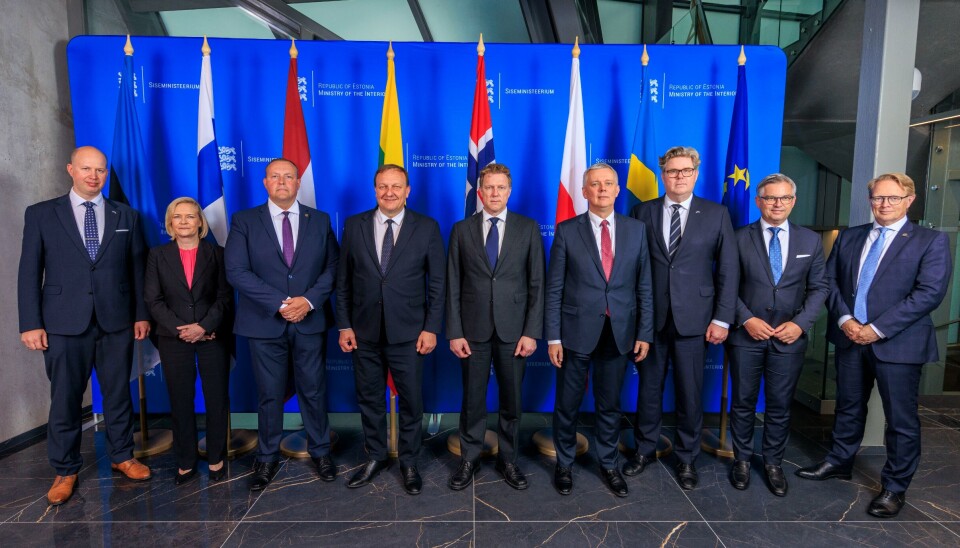
Soldiers fighting against Ukraine will be banned from Storskog entry
Norway and six other north European countries call for Russian soldier to be banned from the Schengen visa zone.
At a meeting in Tallinn on Thursday, ministers and state secretaries from the Nordic countries, Baltic states and Poland came with a joint statement to block entry to the Schengen zone of all Russian citizens who have participated in the aggression against Ukraine.
“There are hundreds of thousands of Russian citizens who have fought against an independent European country, and we should take a very clear stance that these people cannot travel freely in Schengen. We will not grant them residence permits, we will not grant them visas, because this whole group, which has killed and destroyed there, poses a very serious security threat to all of us,” said Estonia’s minister of interior Igor Taro to state broadcaster ERR.
From Norway participated state secretary in the ministry of justice and public security, Joakim Sevrin Tranvåg.
The other countries calling on Schengen to ban entry of war participants from Russia were Finland, Sweden, Poland, Estonia, Latvia and Lithuania.
All the countries that signed the call, except Sweden, share a land border with Russia.

"The threat to democratic Europe posed by the regimes of Russia and Belarus is systematic and long term, which is underlined by the fourth year of Russia's war of aggression against Ukraine and Belarus' support for this war," the joint statement reads.
It continues:
"Even in case of cessation of full-scale military aggression against Ukraine, the threats to the European Union's internal security posed by Russia will remain. Member States should take all necessary measures to ensure that individuals who are or have been contracted by the Russian armed forces or other armed groups acting on behalf of the regime are not allowed to undermine our security or move freely within the Schengen Area. In particular, it is important to avoid granting residence permits or visas to those who have participated in the war of aggression against Ukraine."
Visa-free zone
For Norway, however, the paradox is obvious: On one hand stay firm together with European neighbours in solidarity with Ukraine, but simultaneously maintain a hope that better relations with Russia will come.
Norway still has a valid bilateral agreement with Russia on visa-free travel in a 30-kilometres zone on each side of the border.
“The development in Russia is now moving in an authoritarian and totalitarian direction. At the same time, Norway does not want to close the doors to possible developments in the future,” said state secretary in the foreign ministry Eivind Vad Petersson to the Barents Observer when asked about the visa-free zone last year.
“We have not taken the initiative to terminate bilateral agreements with Russia,” Petersson said.
Although the agreement is still active, there are no Russians today holding a valid ID for visa-free entering at Norway's Storskog checkpoint, as such permissions where only issued by the Consulate General in Murmansk. The diplomats closed the doors at the Consulate in 2022 after serious harassment over time.
It was then-foreign minister Jonas Gahr Støre that on November 2nd 2010 signed the visa-free travel agreement with Sergei Lavrov making Norway the first Schengen-member state to have such arrangement with Russia. The agreement became active from 2013.

Poland had then already a year before opened for visa-free travel up to 50 kilometers from the border for people living in the Russian exclave Königsberg. The Polish arrangement, however, became short as Warsaw terminated the deal after Moscow annexed Crimea and started its war in eastern Ukraine in 2014.
In the north, Norway continued to welcome Russians without Schengen-visa from the Pechenga municipality.
Military stronghold
The 30-kilometer zone is home to both the 200rd Motorized Rifle Brigade and the 61st Naval Infantry Brigade. The latter also known as the Kirkenes Brigade, named in honour of the Red Army’s liberation of the Norwegian border town from Nazi-German occupation in 1944.
Both brigades have since 2014 had soldiers and weapons in Ukraine. Since the all-out war in February 2022, thousands of soldiers from Russia’s northern border region with Norway are sent to battlefields.
Many are killed in action, especially from the 200th Motorized Rifle Brigade, as previously reported by the Barents Observer.














